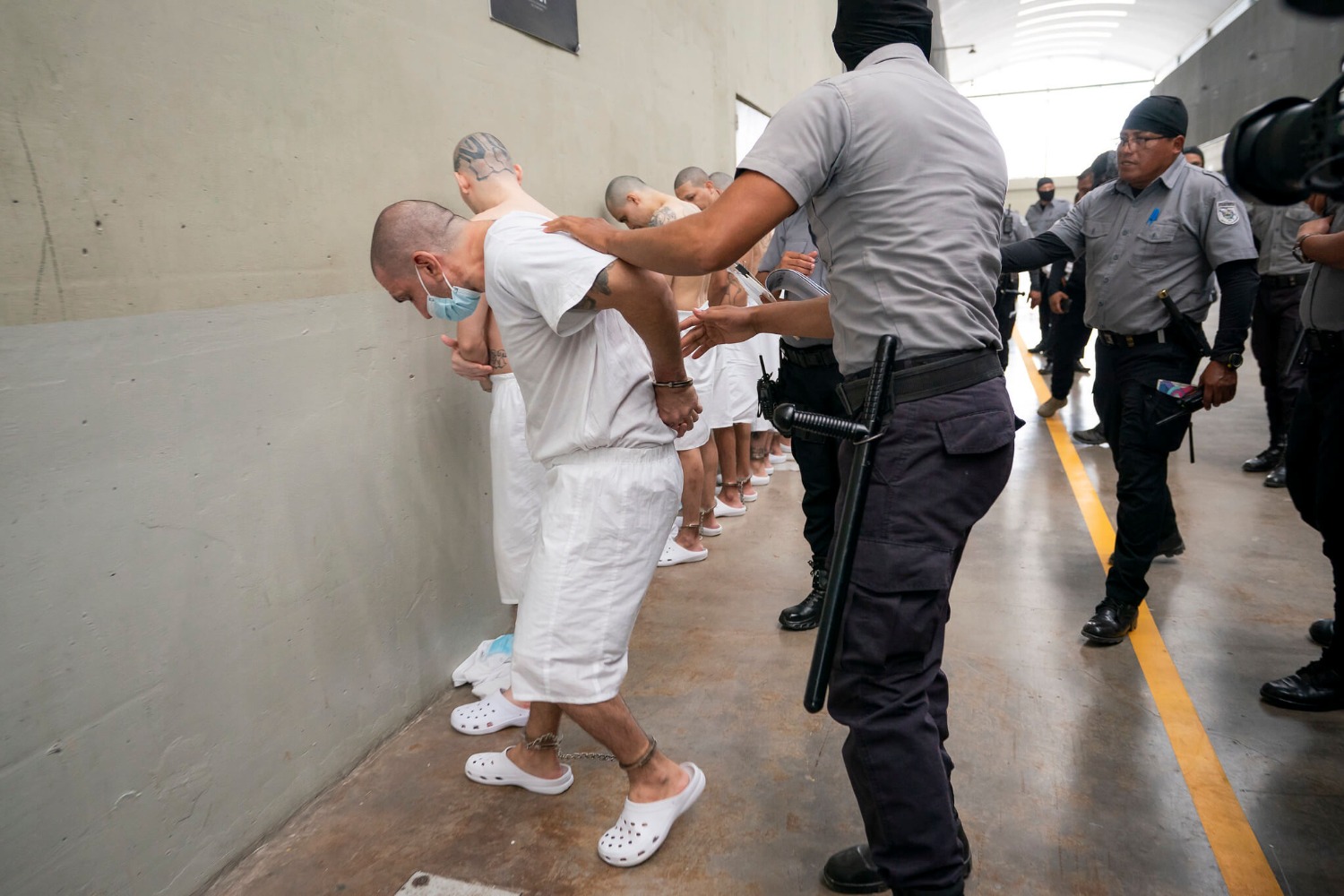Judge Cannon Issues Another Troubling Order in Mar-a-Lago Case

Published by The Lawfare Institute
in Cooperation With

Editor’s Note: This article originally appeared on the author’s Substack.
On Aug. 7, in the U.S. District Court for the Southern District of Florida’s version of United States v. Trump, Judge Aileen Cannon issued an order denying the Justice Department’s motion to seal and requesting supplemental briefing. While seemingly insignificant, today’s order raises troubling concerns regarding her administration of the case.
“I’m not here to talk about the past.”
Cannon became nationally known in August and September 2022, when, in a civil case brought by Donald Trump, she issued a series of unusual orders blocking the Justice Department from reviewing documents seized at Mar-a-Lago and appointing a special master to oversee the Justice Department’s work. The U.S. Court of Appeals for the Eleventh Circuit reversed Cannon’s ruling, holding that the court lacked jurisdiction to interfere with the Justice Department’s review of lawfully seized documents.
Trump has now been indicted in the Southern District of Florida along with two co-defendants, Waltine Nauta and Carlos De Oliveira. Cannon is presiding over the criminal case.
Contrary to some arguments I have heard, the government has no basis to seek Cannon’s recusal, and Cannon has no obligation to recuse on her own. Although Cannon’s prior decision was incorrect, perhaps egregiously so, a single incorrect judicial decision is not a sufficient basis to infer a judge is biased. Indeed, judges routinely preside over cases in which their orders are reversed.
If we are concerned about Trump’s defiance of legal norms, we should respond by sticking to those norms strictly. And traditional norms require us to presume Cannon will be a neutral and fair judge, rather than calling her a “MAGA judge,” etc., based on disagreement with her prior decision. That does not mean that her legal reasoning should be immune from criticism. It is fair to disagree publicly with the reasoning in a judicial decision, as indeed I will do below. But imputing bad faith to the decision-maker based on disagreement with the decision corrodes the rule of law.
With that out of the way, let’s take a look at today’s order.
Fair Trials Are Good
On Aug. 1, the Justice Department indicted Donald Trump in the U.S. District Court for the District of Columbia. The next day, the Justice Department moved for a so-called Garcia hearing in the Southern District of Florida.
A Garcia hearing is a hearing to ensure that a criminal defendant has adequate notice of his lawyer’s conflicts of interest. Waltine Nauta, Trump’s co-defendant in the Southern District of Florida, is represented by a lawyer named Stanley Woodward, Jr. According to the Justice Department’s motion, Woodward previously represented the person identified in the indictment as “Trump Employee 4” and is currently representing two other potential witnesses, “Witness 1” and “Witness 2.” (A little Googling makes it pretty easy to conjecture who these people are, but their identities have never been publicly revealed.)
If a lawyer, representing a client in a criminal case, has to cross-examine another one of his clients, an obvious conflict of interest arises. To represent his criminal client vigorously, he might have to make the witness look bad—but he can’t do that, because he represents the witness too. Because criminal defendants have a Sixth Amendment right to unconflicted counsel, Woodward’s representation of Nauta, while Woodward simultaneously represents witnesses in the same case, might yield a Sixth Amendment violation.
Woodward doesn’t represent Trump Employee 4 anymore, but his prior representation of Trump Employee 4 still poses a problem. Woodward presumably engaged in attorney-client privileged communications with Trump Employee 4. Even though he no longer represents Trump Employee 4, he is still obliged to keep those communications confidential. So if he cross-examines Trump Employee 4, he’ll constantly have to calculate whether his questions are influenced by privileged information, and he might hold back if there’s a risk he’ll be accused of an ethical violation by his former client. This is improper because he should be thinking about only one thing—zealous representation of his current client, Nauta.
The Justice Department can’t straight-up ask for Woodward to be disqualified, however, because that would raise a different Sixth Amendment issue. Clients, within reason, have a right to choose their own lawyers. If Nauta wants Woodward to represent him, notwithstanding these conflicts, it’s not the Justice Department’s job to get in the way.
Courts have devised a procedure to deal with this problem. In the Eleventh Circuit, this procedure is known as a Garcia hearing. Basically, the court holds a hearing in which it ensures the defendant is aware of the risks of a conflicted lawyer. The court can even appoint independent lawyers to represent the defendant and the witnesses for the purpose of explaining the risks of a conflicted lawyer. The case doesn’t proceed unless the defendant is fully apprised of the risks of having a conflicted lawyer and elects to proceed with that lawyer anyway.
Why is the Justice Department raising this point to the court’s attention? Is it because the Justice Department is passionately committed to ensuring that Waltine Nauta has zealous representation? No, it’s because the Justice Department doesn’t want a conviction to be reversed on appeal. If the Justice Department sits back and lets Woodward represent Nauta, and Nauta is convicted, Nauta is guaranteed to retain a new lawyer on appeal saying that Woodward was conflicted and Nauta therefore gets a new trial. The Justice Department can’t say that Nauta waived this argument by failing to raise it in the district court because … Nauta’s own lawyer, who would have raised the argument, was conflicted! However, if the district court holds a hearing and makes extra double super sure that Nauta understands the risks of Woodward representing him, that would be a valid waiver that would hold up on appeal.
The Justice Department’s Garcia motion declines to identify Witnesses 1 and 2. Instead, the Justice Department’s motion says: “In order to comply with grand jury secrecy requirements, the Government does not include the names of these individuals in this public filing, and instead provides additional information relevant to this motion in a sealed supplement.”
This is likely a reference to the grand jury proceeding in the District of Columbia. Under Federal Rule of Criminal Procedure 6, government attorneys generally are barred from disclosing matters occurring before a grand jury.
The Justice Department isn’t doing anything wrong by disclosing the fact of a separate grand jury proceeding. Remember that Trump was indicted in the D.C. district court on Aug. 1—prior to the Justice Department’s filing of the Garcia motion—so the cat is out of the bag on that. However, the Justice Department doesn’t want to disclose the identity of the witnesses, because that would tend to reveal the fact that those witnesses testified before the D.C. grand jury, in violation of the Justice Department’s duty of secrecy. Also, the Justice Department might have to disclose details of their testimony in order to explain why there’s a conflict, which it can’t do because of grand jury secrecy rules.
Therefore, the Justice Department decides to do a completely normal thing—file the secret information under seal. As a general matter, court proceedings are supposed to be public, so litigants need permission to file under seal. So, the Justice Department files a motion for leave to file the secret information under seal (which is itself under seal), and it separately files, under seal, the secret information.
The Justice Department’s motion notes: “The Government has advised Mr. Woodward of its intent to file this motion requesting a Garcia hearing and its reasons for doing so. Mr. Woodward has indicated that as a general matter he does not oppose the Court informing his client of the client’s rights or inquiring into potential waivers, but that he will not consent to this motion without seeing it in advance, and he requests the opportunity to respond.” This is a reasonable position for Woodward to take—he can’t possibly object to a hearing intended to safeguard his own client’s constitutional rights, but he wants to see the motion before taking a position.
So, this motion is a hanging curveball for Judge Cannon. It’s obvious how Cannon should respond to this motion. She should wait to hear Woodward’s position on it!
If Woodward agrees a Garcia hearing is warranted, Cannon should hold the hearing to ensure that Nauta’s rights are protected. Maybe there’s some discretionary reason to deny the hearing even if everyone agrees it’s warranted? I can’t think of one, but maybe. But clearly, Cannon should wait until she hears from Woodward before deciding what to do.
Welcome to Bizarro World
Instead, Cannon does something intensely weird. Two things, actually.
First, she denies the Justice Department’s motion to seal.
Second, she requests that Nauta file a response brief to the Justice Department’s motion addressing, among other things, “the legal propriety of using an out-of-district grand jury proceeding to continue to investigate and/or to seek post-indictment hearings on matters pertinent to the instant indicted matter in this district.” She also says Trump and De Oliveira “may, but are not required to” file a brief addressing this issue.
Let’s go through those one by one.
Secret Things Should Be Secret
First, the court denies the Justice Department’s motion to seal, and strikes the motion for leave to file under seal, as well as the secret information itself, from the docket.
Here’s the court’s rationale: “The Special Counsel states in conclusory terms that the supplement should be sealed from public view ‘to comport with grand jury secrecy,’ but the motion for leave and the supplement plainly fail to satisfy the burden of establishing a sufficient legal or factual basis to warrant sealing the motion and supplement.”
Seriously?
Grand jury proceedings are supposed to be secret, and the Justice Department is disclosing the identity of grand jury witnesses and the substance of their testimony, so it wants to keep that information secret. That’s not a “legal or factual basis to warrant sealing the motion and supplement”?
I haven’t seen the motion for leave to file under seal, so I guess it’s possible that Jack Smith’s team is completely inept and failed to inform Judge Cannon that grand jury proceedings are supposed to be secret. I doubt it, though.
Maybe Cannon thinks that the filings didn’t have to be sealed in their entirety? But if she thought that, she could have directed the Justice Department to file heavily redacted versions of the sealed filings, in addition to the sealed filings. She doesn’t do that. She just strikes the filings.
One clue as to why she’s doing this may come from her request for additional briefing (which I’ll get to below) on “the legal propriety of using an out-of-district grand jury proceeding to continue to investigate and/or to seek post-indictment hearings on matters pertinent to the instant indicted matter in this district.”
But this makes no sense. If she thinks there might be something wrong with the Justice Department relying on the D.C. grand jury proceeding, why is she immediately striking the sealed filings? Why doesn’t she wait for the response and then strike the filing if she agrees with the response?
As of right now, she’s asking for a response regarding “the legal propriety of using an out-of-district grand jury proceeding”—even though she has stricken the filing that makes reference to the out-of-district grand jury proceeding! Why is she doing this?
Why should we care that she struck the sealed filings? Because, by striking the sealed filings, she is disabling the parties and the court from identifying the witnesses and explaining the nature of the conflict! The Justice Department can’t provide this information to the court publicly (it’s supposed to be secret), and it’s been prevented from providing it under seal. The defendants aren’t going to reveal secret information either. So how on Earth can the court make an informed decision on whether to conduct a Garcia hearing?
Welcome to Bizarro World, Part Deux
In the second part of Judge Cannon’s order, as noted above, she directs Nauta to “file a response to the Motion for a Garcia hearing.” “Among other topics as raised in the Motion, the response shall address the legal propriety of using an out-of-district grand jury proceeding to continue to investigate and/or to seek post-indictment hearings on matters pertinent to the instant indicted matter in this district.” With regard to Trump and De Oliveira, she says: “The remaining Defendants may, but are not required to, file briefs of their own related to the grand jury issue referenced herein.”
Seriously?
The judge hasn’t actually done anything yet, she’s Just Asking Questions, as they say on the internet. Still, one might make a few observations about this request.
First, Cannon has already started litigating from the bench. Nauta is free to make any argument he wishes regarding the Justice Department’s humdrum motion to file under seal. Why is she making suggestions for him?
Second, in the motion for a Garcia hearing, the Justice Department notes that Trump did not take a position on the motion—no surprise, because it has to do with Nauta’s representation, not Trump’s. Yet here, Cannon is explicitly inviting Trump to respond to a motion Trump has already said he does not care about and has no reason to care about: “The remaining Defendants may, but are not required to, file briefs of their own related to the grand jury issue referenced herein.” Why?
Third, the argument that Cannon proposes doesn’t make any sense. What “propriety” problem is she talking about?
Cannon seems concerned that the Justice Department is “using” the D.C. district court grand jury proceeding to seek “post-indictment hearings” in the Southern District of Florida. The post-indictment hearing the Justice Department is seeking is one to safeguard the defendant’s right to conflict-free counsel. Is she suggesting that the Justice Department is supposed to keep secret from the court an impending violation of Nauta’s constitutional rights?
Fourth, as alluded to above, where’s the “propriety” problem if Cannon has just stricken the sealed filings? Or is the mere utterance of the words “grand jury” in the Justice Department’s motion a basis to … I dunno … deny the motion for a Garcia hearing? Dismiss the indictment against Nauta? Put the Justice Department into receivership?
Again, right now, Judge Cannon is merely requesting briefing. No biggie. But well … she’s inviting briefing on a frivolous argument from not only Nauta but also Trump, who has already said he doesn’t care about this motion, while simultaneously striking the filing with the information necessary to decide the motion intelligently.
I’m stoked for what comes next.



.jpg?sfvrsn=676ddf0d_7)

